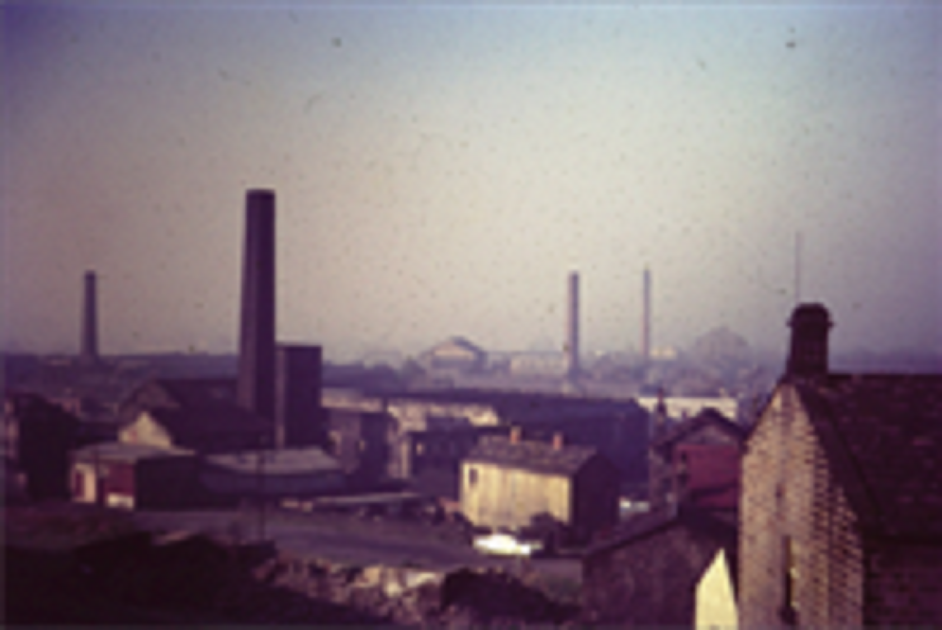| Title | All History Matters |
| Date | 1906 – 1934 |
| Location | Aireborough |
| Written By | Carlo Harrison |
| Comment | A selection of historical pieces taken from the Archives held in Yeadon Town Hall. |
1906 – 1934
9th March 1906.
A joint meeting of the Yeadon, Rawdon & Guiseley Urban Councils was held at Yeadon & discussed the advisability of again asking Leeds Corporation to extend their train system from Horsforth through Rawdon & Yeadon to Guiseley.
It was decided to send a deputation to Leeds Tramways Committee.
also
Yeadon Council heard a report of the feasibility of obtaining motor buses for Yeadon.
Inquires led them to assume at 11d per mile would be a fair estimate of the cost of working covering all expenses.
The cost of a single bus was about £800 & a double decker £950.
The Council decided to pursue inquiries as to the financial aspect of the proposal.
27th April 1906.
Yeadon Urban District Council gave further consideration to the purchasing of motor buses for the district. They decided to loan a bus from a firm at Cowling – a 24h.p. single decker – which was available to them on four days in the week.
The bus was to be run as a trial.
At the same time it was decided to invite Rawdon Council to join Yeadon in asking the Bradford Corporation to extend their tram system to the City boundary at the George & Dragon Inn at Apperley bridge.
11th May 1906.
Yeadon’s first motor bus which has been engaged by members of the local District Council covered a distance of nearly 80 miles on its first days outing between Greengates & Kirkstall.
It was a double decker of 28h.p. capacity & inside and outside was capable of accommodating 38 passengers although one of the trips there were fully 50 passengers aboard.
The report states that it was brilliantly lighted with acetylene lamps.
20th July 1906.
New Hours of work & rates of pay were agreed at a meeting of fettlers employed in Yeadon & Guiseley mills at a conference of master & workman at Guiseley.
Two fettlers from each mill in the district accompanied by Mr H. Lockwood, the secretary of the local Factory ‘Workers’ Union attended.
It was agreed that the working day be from six to six, with intervals for meals, & six to twelve on Saturdays, or a total of 50 hours a week; that the rate of pay be 5 1/4d per hour or £1 5s 4 1/2d per week of 58 hours, with 6d per hour for overtime.
10th June 1910.
As an experiment a motor van was used for conveyance of the morning mails from Leeds to Horsforth, Rawdon & Yeadon, the existing mail cart being still used for for conveyance of the morning mails from Leeds to Guiseley & Menston & for taking away the dispatches.
Unfortunately the motor van broke down somewhere in the vicinity of Horsforth & as a result the delivery of letters in Yeadon was two or three hours later than usual.
5th August 1910.
Bank Holiday, though not recognised except to a very small extent by local residents were made evident in Guiseley by the number of Leeds people using the trams.
The trains were running every minute at some parts of the day.
Some visitors spent the day around Guiseley, Hawksworth, Esholt Springs & on the Chevin, while others went further afield by train
The trams at Yeadon started to stop by request opposite the secondary school.
1934.
The proposal of Leeds Corporation to withdraw trams from the Leeds-Guiseley route & substitute buses was carried a stage further with the announcement that the Traffic Commissioner had granted a license for a bus service between Eastgate, Leeds & White Cross, Guiseley.
There would be a service of buses every 10 minutes from 7am to 11pm.
The change over meant an increase in fares between City Square & Guiseley from 3d single on the trams to 7d single on the buses.
Consolidated by Jack Brayshaw. 04 August 2022.
Last updated: 04 August 2022.

